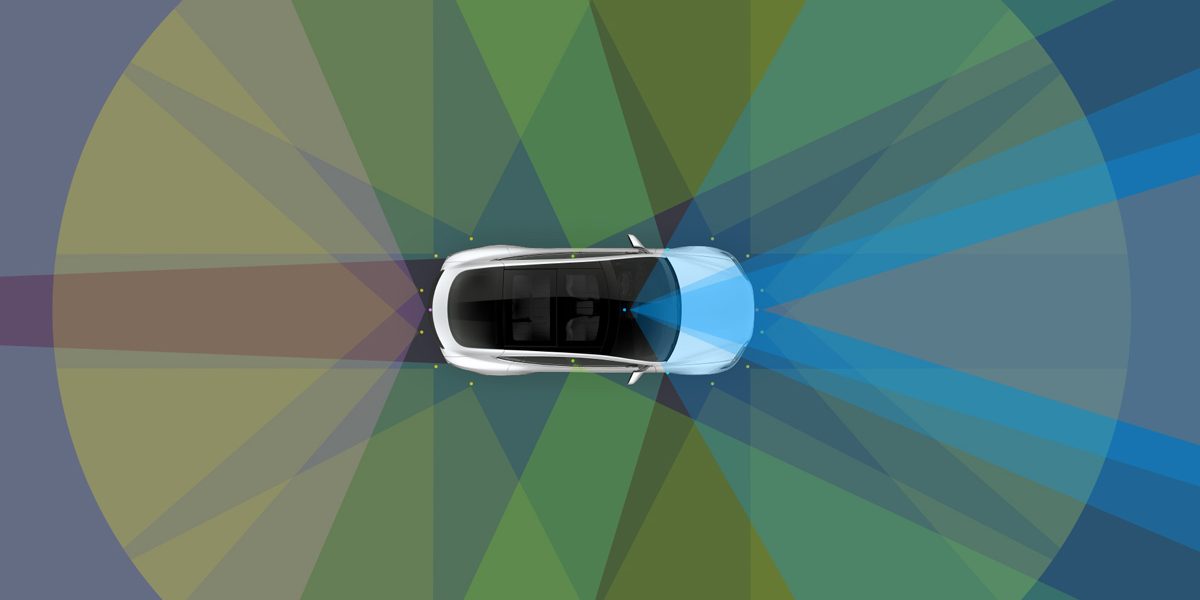
Tesla has settled another lawsuit involving its Autopilot driver-assist system, which is alleged to have caused a crash. This time, a 2020 Model Y on Autopilot crashed into a stationary police vehicle in Texas.
This is Tesla’s fourth known settlement in lawsuits involving Autopilot crashes since losing its first trial earlier this year.
The case, James Tran vs. Tesla, Inc., was filed in Harris County, Texas, after an incident on November 15, 2020.
According to the lawsuit, James Tran was traveling on the I-10 freeway in his 2020 Model Y with the Autopilot feature engaged. Up ahead on the same road, three Harris County Constable (police) vehicles were blocking several lanes of traffic for a prior accident.
Tran’s Model Y, while operating on Autopilot, collided with one of the stationary constables’ vehicles.
In his petition, Tran alleged that Tesla’s “Autopilot… system safety features failed to detect” the emergency vehicles or “function in any way to avoid or warn of the hazard”. His lawyers claimed the system had a “failure to warn” about its known “inability to detect emergency cars with flashing lights” and sought over $1 million in damages.
As it almost always does, Tesla’s defense centered on blaming the driver. In a March 2024 “No-Evidence” motion, Tesla’s lawyers alleged that Tran had been “gambling and drinking at a casino” before the 2:40 a.m. crash and “dozed off” behind the wheel.
From the beginning of the case, Tesla’s legal strategy was to argue that Tran was the “sole cause” of his injuries. By 2024, they argued he had “no evidence” and, crucially, “no experts” to prove Autopilot was at fault.
Tesla sought dismissal, but the judge allowed it to proceed, and the case was set for trial on November 11.
Despite this aggressive defense, Tesla didn’t let a jury decide the case.
Days before the trial was set to start, Tesla’s lawyers quietly filed a “Notice of Settlement” on November 6, 2025. The document simply states that “the parties in the above-captioned case have reached a settlement”. The terms, as usual, are not disclosed in the filing.
Shortly after Tran’s crash, Tesla was investigated by NHTSA regarding Autopilot-equipped vehicles crashing into emergency vehicles. The federal agency found 11 incidents that resulted in 17 injuries and one death.
NHTSA eventually concluded that Tesla’s driver monitoring system for Autopilot was “inadequate” and Tesla had to issue a recall.
However, NHTSA launched another investigation into the recall fix itself, and other similar crashes have occurred since, including one into a police car last month.
The floodgates are open
As we reported, the floodgates of lawsuits related to Tesla Autopilot/FSD crashes are open after Tesla lost its first case that went to trial earlier this year.
For the first time, a case went to trial before a jury, and they assigned a third of the blame for the crash to Tesla for the role Autopilot played. The rest of the blame was put on the driver, who had already settled with the victims and their families before the Tesla trial began.
The jury awarded the plaintiffs $243 million. The automaker has made clear its intentions to appeal the verdict.
Before the trial, the plaintiffs offered Tesla a $60 million settlement, but the company refused.
The trial was costly for Tesla, not only because of the more than $240 million award, but also because of the information that came out during the trial, which didn’t make Tesla look good.
There are dozens of other cases currently going through the court process, and now they can take advantage of what was learned through the trial.
To avoid further discovery, Tesla appears to be increasingly willing to settle these cases.
With the Tran case, it now marks at least Tesla’s fourth known settlement of lawsuits involving Autopilot/FSD crashes since losing the trial in August.
Electrek’s Take
As I have been highlighting over the last few months, this is just the beginning. We are just now starting to see cases that come from crashes that happened in 2018-2019-2020 go to trial.
It’s a long process, but we know that the number of crashes involving Autopilot and FSD significantly ramped up in 2021-2025 due to higher volumes and the launch of FSD.
All these accidents, many of them unfortunately fatal, are going to go through the legal process, and Tesla will have to settle for billions of dollars when everything is said and done.
Simply blaming the driver for abusing Tesla’s ADAS system is not working anymore. Tesla is consistently taking at least part of the blame for misleading drivers into believing its ADAS systems are more than they are or for their monitoring system’s lack.
In fact, there’s another similar lawsuit in the same county as the Tran lawsuit, which is about to go to trial unless Tesla settles it soon. It involves a drunk driver on Autopilot crashing into 5 police officers, injuring them in the process. The officers are suing Tesla with a similar approach to that of Tran in this case.
FTC: We use income earning auto affiliate links. More.


